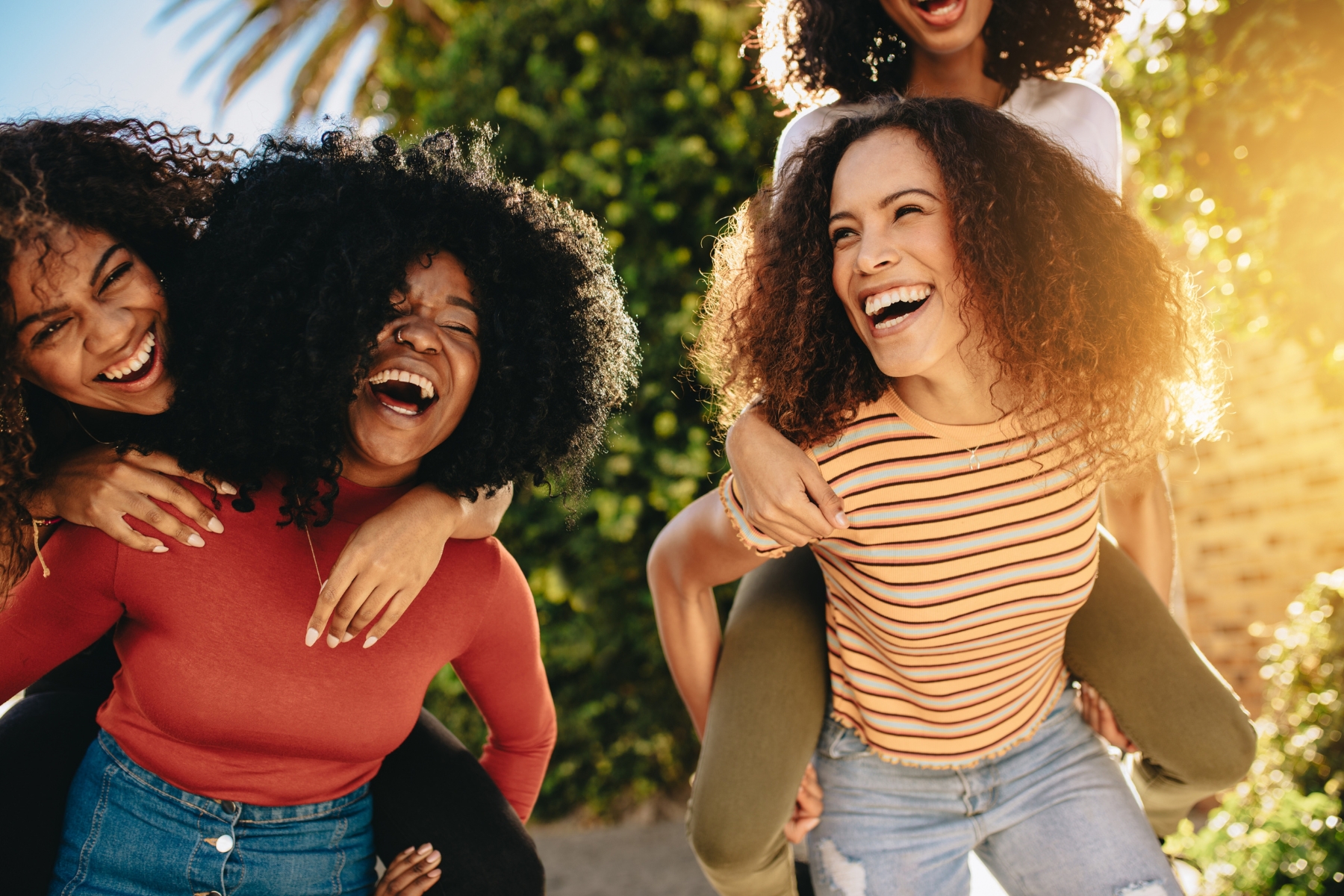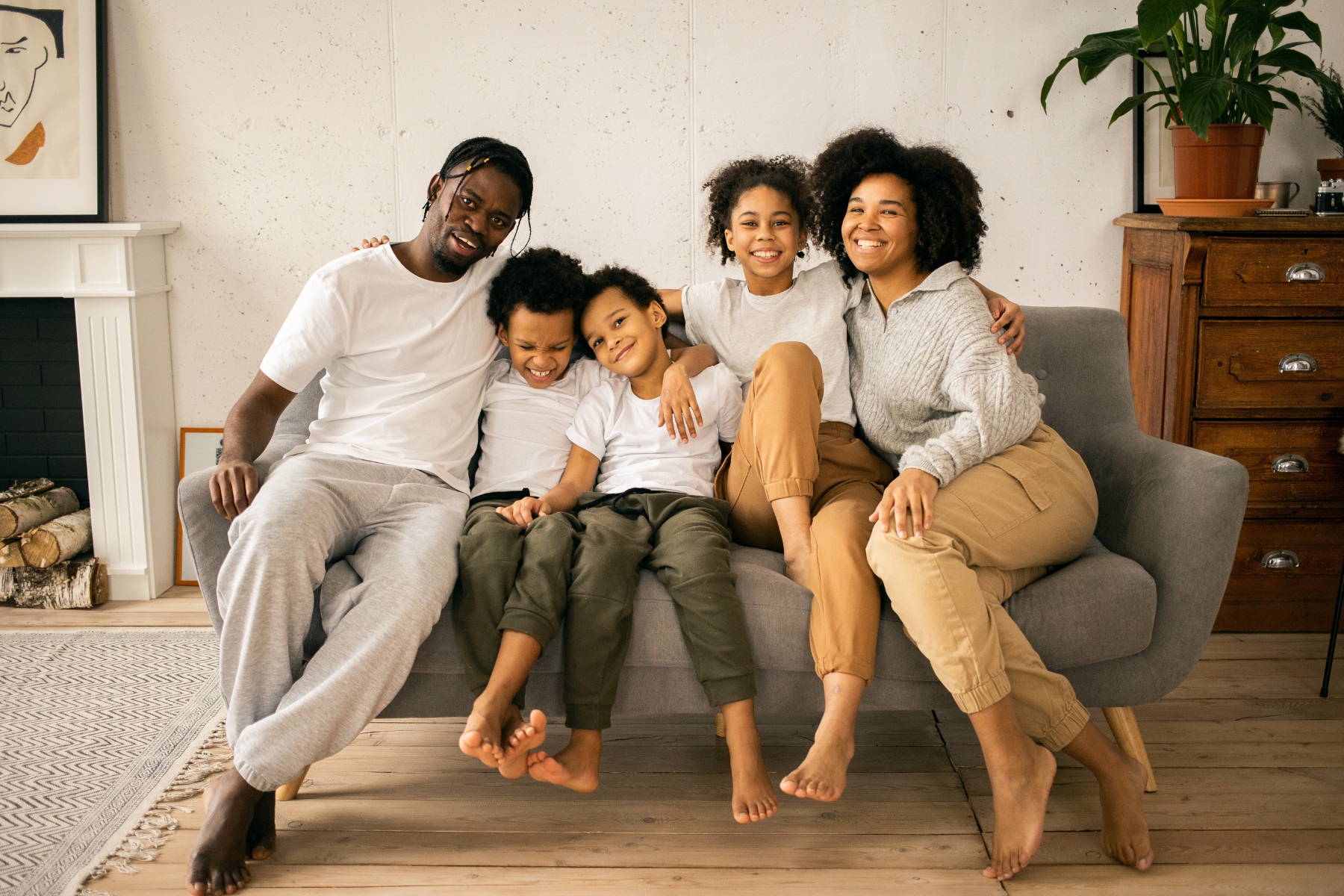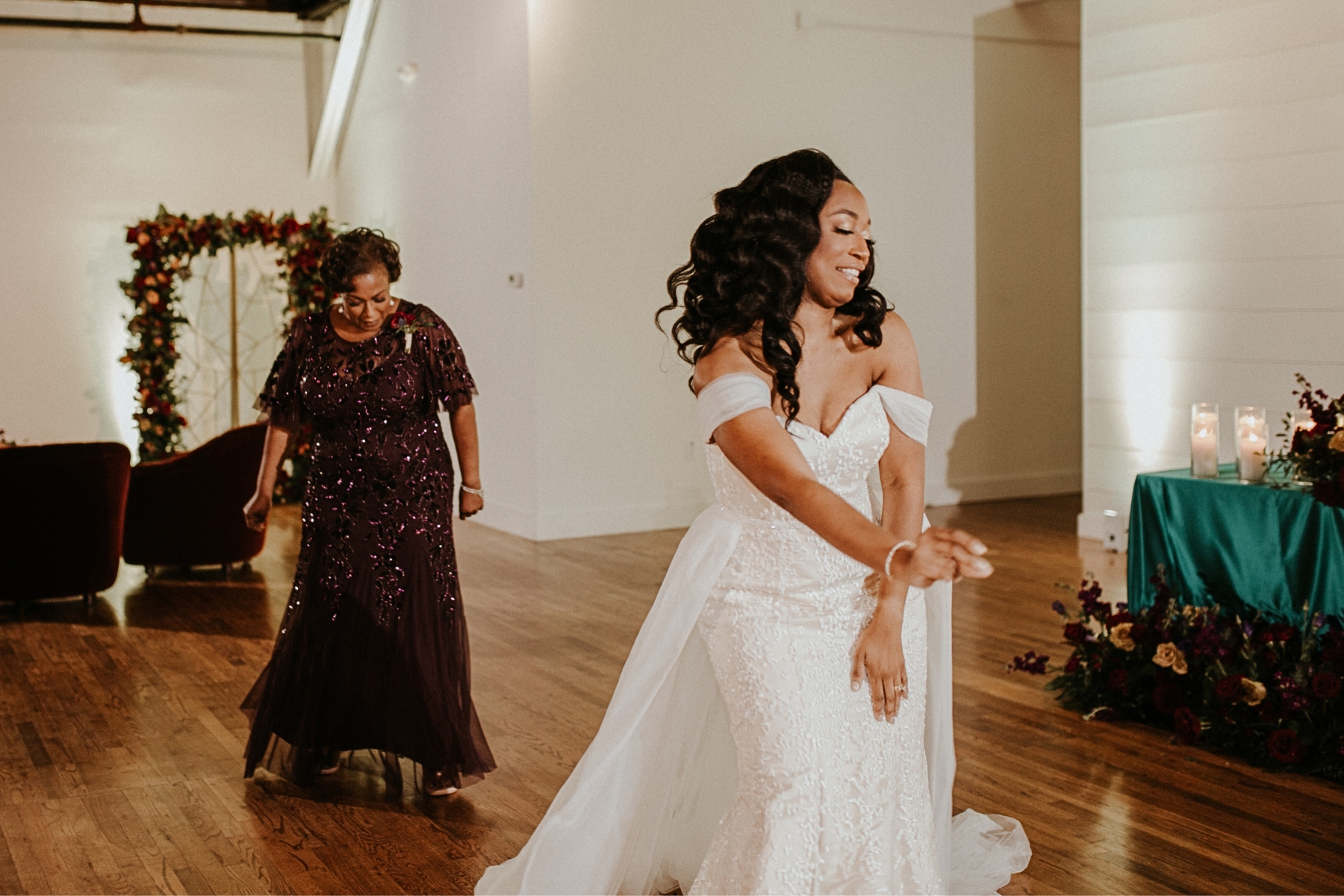You’re preparing to walk down the aisle, but you’ve probably already walked through countless life chapters with your closest girlfriends. From heartbreaks to career wins, late-night vent sessions to celebratory brunches—these are the relationships that have shaped how you love, how you show up, and how you grow.
But what if we told you those bonds are more than just support systems—they’re actually training grounds for marriage?
In a recent episode of the Hue I Do podcast, we had the pleasure of sitting down with Dr. Joy Harden Bradford, licensed psychologist, founder of Therapy for Black Girls, and author of the powerful book Sisterhood Heals. Through our conversation, one thing became clear: our friendships—especially between Black women—prepare us for the emotional, communication, and boundary-setting work required in a healthy romantic relationship.
Here’s how your ride-or-dies are helping you become a better partner, one honest conversation at a time.
Learning to Navigate Conflict
One of the most valuable lessons friendships teach us is how to deal with conflict in a healthy, constructive way. Many of us grow up conflict-avoidant, fearing that disagreement equals disconnection. But in true friendship, we begin to learn that tension doesn’t have to mean the end.
“I think with our girlfriends sometimes we have some of that early practice of working through difficult stuff,” Dr. Joy shared. “So the more experience you have saying difficult things across situations, the easier it can be to do that with a romantic partner or with a boss or in whatever situation.”
Friendships offer a low-stakes environment to say the hard things, hear the hard things, and still choose love. That’s the kind of emotional muscle you’ll need in marriage too.
Building Communication Skills
Strong communication is one of the most repeated pieces of relationship advice—but it’s not always easy to develop. Dr. Joy pointed out that many people “don’t always have the language to actually talk about with one another and some of the feelings that are more difficult for us to talk about.”
Friendships give us the space to practice that language. Whether it’s learning how to say “I felt left out” or “That didn’t sit right with me,” those conversations are foundational. They build the emotional vocabulary and listening skills needed for a healthy marriage—where silence and avoidance often lead to bigger issues.
Setting and Respecting Boundaries
From “I can’t make that trip” to “I need some space right now,” friendships often require us to set and respect boundaries. And how we navigate those lines with friends prepares us for doing the same in a romantic partnership. Dr. Bradford highlighted this connection clearly: “Navigating conflict or the lack of navigating conflict is actually what can make a relationship stronger—or cause a relationship to disintegrate.”
In marriage, boundaries show up everywhere: financial goals, time management, in-laws, sex, communication styles. Knowing how to lovingly assert your needs—and honor someone else’s—is essential. And chances are, your friendships have already been your practice field.
Experiencing Vulnerability and Trust
Long-term friendships often span years—sometimes decades—and with that time comes a growing sense of trust. You’ve shared secrets, fears, dreams, disappointments. You’ve seen each other through death, heartbreak, moves, and new beginnings.
As we talked about our own 25-year friendship, Dr. Joy affirmed the power of these moments: “There was a lot of conversation around being able to have difficult conversations and that really increasing the intimacy in our friendships.” That same vulnerability—letting someone see the unfiltered you, and trusting they’ll still love you—is what sustains a healthy marriage.
Working Through Major Life Transitions
Marriage is a major life transition—but it’s rarely the first. Before marriage, there’s usually a long list of other transformative moments: job changes, cross-country moves, caregiving, health scares, pregnancy. And in many cases, it’s your friends who walk with you through them.
Dr. Joy pointed out that while these life moments are exciting, they are also emotionally demanding: “There’s research that talks about the top 50 stressors in our life and the top five are getting married, buying a house, getting pregnant… but they’re also incredibly stressful.”
Friends who help us navigate those seasons model what it looks like to receive support, voice our needs, and stay grounded in the chaos—essential tools in married life.
Honoring the Value of Friendships
Romantic relationships are important—but they aren’t the only relationships that matter. Dr. Joy challenged the idea that our spouse should be everything: “I think we can have a very fulfilling romantic relationship, but also have lots of space for our girls and not have them as second-rate citizens.”
This is especially important for Black women, who often shoulder emotional labor in all areas of life. Maintaining strong friendships allows us to spread that emotional weight and access multiple sources of joy, truth, accountability, and laughter.
Conclusion: Sisterhood Is the Blueprint
As Black women, we’re often taught to prepare for marriage by focusing on the external: the ring, the venue, the dress. But what if the most meaningful preparation happens internally—in the way we love our friends, speak our truths, set boundaries, and grow together?
Dr. Joy Harden Bradford’s Sisterhood Heals reminds us that these relationships are not side stories in our love lives—they’re central chapters. “Friendships,” she said, “are just as important as romantic relationships. And I want us to be intentional in cultivating good relationships with both.”
So the next time you share a laugh, set a boundary, or say “I’m sorry” to a friend, know this: you’re building the skills you’ll need for your marriage, too.
To learn more, check out Dr. Joy’s Therapy for Black Girls podcast and grab her book Sisterhood Heals. Because when we invest in sisterhood, we invest in ourselves—and in every kind of love we hope to receive.




